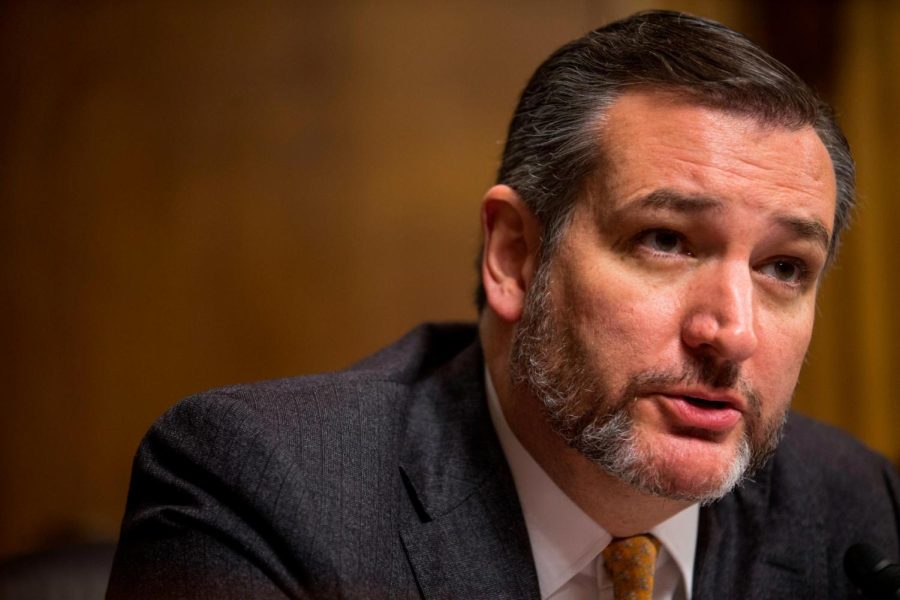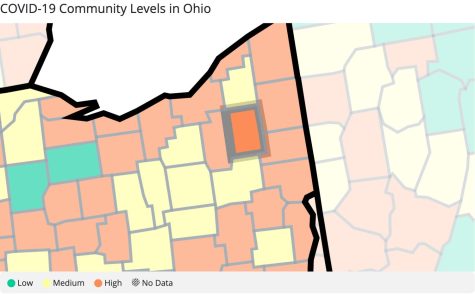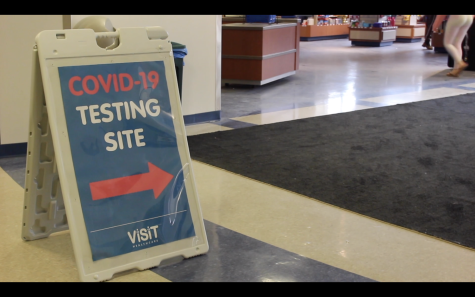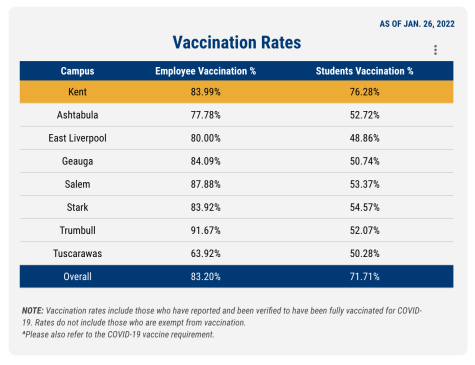More lawmakers self-quarantine after members of Congress are diagnosed with coronavirus
Two members of Congress on Wednesday announced they had tested positive for coronavirus, prompting other lawmakers, including Republic Senator Ted Cruz of Texas, to self-quarantine at the direction of the House physician.
March 18, 2020
(CNN) — Two members of Congress on Wednesday announced they had tested positive for coronavirus, prompting other lawmakers to self-quarantine at the direction of the House physician.
Republican Rep. Mario Diaz-Balart became the first member of Congress to test positive for coronavirus, he announced on Wednesday, marking a major milestone as the pandemic grips Washington. Later in the same night, Rep. Ben McAdams, a Utah Democrat, announced that he had tested positive as well.
As lawmakers on Capitol Hill grapple with how to contain the spread of coronavirus across the United States, at least 18 members of Congress have announced steps to self-quarantine or otherwise isolate themselves as a precaution after coming into contact with an infected individual.
In addition, Republican Rep. Mark Meadows of North Carolina, President Donald Trump’s incoming White House chief of staff, announced on Monday that he was working at the White House as he transitions into the new role after a period of self-quarantine.
Here are the rest of the impacted lawmakers:
Ted Cruz
Republican Sen. Ted Cruz of Texas announced that he would “remain at my home in Texas” after being notified that he had contact with an individual at the Conservative Political Action Conference who tested positive.
Cruz later announced, however, that he would extend his self-quarantine after “a second interaction” with an individual who tested positive for coronavirus.
On March 17, Cruz announced that he had completed his period of self-quarantine.
Cruz told reporters that he felt “great” and “strong” on his first day back at the Capitol, saying, “It’s good to be back in the Senate.”
Matt Gaetz
A message posted to Florida Republican Rep. Matt Gaetz’s Twitter account last week stated that the congressman found out he came into contact with an individual at CPAC who had tested positive and would self-quarantine.
Gaetz announced the following day that his test results came back negative, but said he would remain in self-quarantine until Thursday “in an abundance of caution.”
“I’ve just been informed that my COVID-19 lab result was negative. In an abundance of caution, I will remain under self-quarantine at the advice of medical professionals through Thursday at 2pm. I continue to feel fine and show no symptoms,” he tweeted.
Doug Collins
Republican Rep. Doug Collins of Georgia announced last week that CPAC contacted him to tell him that a photo of him and the conference attendee who tested positive had been found, indicating they interacted.
“While I feel completely healthy and I am not experiencing any symptoms, I have decided to self-quarantine at my home for the remainder of the 14-day period out of an abundance of caution,” Collins said in a statement.
Paul Gosar
Republican Rep. Paul Gosar of Arizona put out a statement on March 8 saying that he was similarly notified that during CPAC he was in contact with an individual who had tested positive.
Gosar said that he is “not currently experiencing any symptoms,” but “in order to prevent any potential transmission, I will remain at my home in Arizona until the conclusion of the 14 day period following my interaction with this individual.”
Julia Brownley
Democratic Rep. Julia Brownley of California put out a statement on March 9 saying that she has been informed that “an individual I met with last week in DC tested positive for COVID-19.”
“I have decided to close our DC office for the week,” the congresswoman said, adding, “My staff and I are working remotely.”
“Out of an abundance of absolute caution, my DC staff and I are self-monitoring and maintaining social distancing practices,” Brownley said.
Don Beyer
Democratic Rep. Don Beyer of Virginia said in a statement on March 10 that he will self-quarantine after having dinner with an individual who later tested positive for coronavirus.
He said, “At the request of the public health officials, I will self-quarantine to ensure that I do not pass on any potential illness to others. In the 10 days since that dinner neither of us has shown symptoms, and we understand that the probability that we have an infection is low.”
“My office will close for public business and I will not attend votes or hearings until Monday, when medical advisers say I should be clear to return,” Beyer added.
Rick Scott
Florida Sen. Rick Scott, a first-term Republican, announced on Thursday that he would self-quarantine after potentially coming into contact with a member of the Brazilian delegation who tested positive for coronavirus. The press secretary for the Brazilian President tested positive for coronavirus on Thursday, two sources have told CNN, just days after meeting with the President.
“On Monday, I met with the President in Miami, and while I do not believe I interacted with the infected person, that individual was in the same room as me,” Scott said in a statement.
“The health and safety of the American people is my focus and I have made the decision to self-quarantine in an abundance of caution,” Scott added.
Lindsey Graham
South Carolina Sen. Lindsey Graham announced on Twitter Sunday night that his test was negative.
“I look forward to getting back to work with my Senate colleagues and President Trump to contain this virus and stabilize our economy,” the Republican senator added.
Graham’s office had released a statement on Thursday saying that “Senator Graham was at Mar-a-Lago last weekend. He has no recollection of direct contact with the President of Brazil, who is awaiting results of a coronavirus test, or his spokesman who tested positive.” But, his office said, the senator decided to self-quarantine “in an abundance of caution.”
John Yarmuth
Democratic Rep. John Yarmuth of Kentucky announced on March 15 that he was self-quarantining after an interaction with someone who later tested positive.
“Late yesterday, I was informed that, one week ago, I was in the presence of an individual who has since tested positive for COVID-10,” he wrote. “This individual displayed no obvious symptoms at the time of our contact.”
On March 16, Yarmuth announced that his test results were negative.
“My #COVID19 test results came back NEGATIVE,” he tweeted, adding, “I plan to continue working from home and will avoid going out in order to do my part as we all work to practice safe and precautionary distancing to help defeat this pandemic.”
Ben Ray Luján
Rep. Ben Ray Luján of New Mexico, a member of House Democratic leadership, said on March 16 that he will self-quarantine after an interaction with an infected individual.
A statement from his office said, “Congressman Luján is exhibiting no symptoms, and health professionals have advised that the congressman is at a low probability for infection. He first learned of the individual’s diagnosis Sunday afternoon. Still, out of an abundance of caution for the health and safety of the public, the congressman has chosen to self-quarantine.”
Gwen Moore
Democratic Rep. Gwen Moore of Wisconsin announced on March 16 that she came into contact with an individual who tested positive.
“While I have not shown any symptoms, I will follow guidance from public health officials and practice social distancing and self-quarantine to protect others from potential exposure,” she said.
Cory Gardner
Colorado Sen. Cory Gardner’s office announced Tuesday evening that the GOP senator has decided to self-quarantine after coming into contact with a Colorado constituent who was visiting Washington, DC, and later tested positive for the coronavirus.
“I was alerted today by the Tri-County Health Department that a Coloradan who visited my Washington office for a constituent meeting has tested positive for coronavirus,” Gardner said in a statement Tuesday. “While I am not showing any symptoms at this time, I have made the decision to self-quarantine out of an abundance of caution with an effective date of March 11th at the recommendation of the Tri-County Health Department.”
Jason Crow
Democratic Rep. Jason Crow of Colorado, a freshman whose national profile was elevated during the Senate impeachment trial when he served as a House impeachment manager, announced on March 17 that he would self-quarantine after coming into contact with “a constituent on March 11th who later tested positive for coronavirus.”
Matt Cartwright
Democratic Rep. Matt Cartwright of Pennsylvania announced on March 18 that he would self-quarantine after interacting with someone who tested positive for coronavirus.
“This morning, I received confirmation that a family friend I interacted with over the weekend has tested positive for COVID-19. Out of an abundance of caution, I began self-quarantining in my home on Sunday as soon as I found out they started showing symptoms consistent with this new virus,” Cartwright said in a statement.
Mario Diaz-Balart
Republican Rep. Mario Diaz-Balart of Florida became the first member of Congress to test positive for coronavirus on Wednesday, March 18.
“On Saturday evening, Congressman Diaz-Balart developed symptoms including a fever and headache. Just a short while ago, he was notified that he has tested positive for COVID-19,” his office said in a news release.
Diaz-Balart said in a statement that he is “feeling much better” but urged the public to take the virus “extremely seriously.”
He began self-quaranting in Washington, after voting on March 13, according to his statement.
Ben McAdams
Democratic Rep. Ben McAdams of Utah announced on March 18 that he had tested positive for coronavirus and was in a self-quarantine.
“Today I learned that I tested positive,” he said in a statement released on Twitter. “I am still working for Utahns and pursuing efforts to get Utahns the resources they need as I continue doing my job from home until I know it is safe to end my self-qurantine.”
Drew Ferguson
Republican Rep. Drew Ferguson of Georgia said on Twitter he was going into self-quarantine after being in contact with a member of Congress who has tested positive for coronavirus.
“Today, the Attending Physician of the United States Congress informed me that I was in contact with a member of Congress on March 13th that has since tested positive for COVID-19,” Ferguson tweeted. “After heeding the advice of the President, Governor Kemp and at the direction of the House physician, I will self-quarantine until March 27th. I am asymptomatic and will continue to work from my home in West Point, Ga.”
Steve Scalise
Republican Whip Steve Scalise of Louisiana said in a statement that he was going into self-quarantine after he held an “extended meeting” with Diaz-Balart, who has tested positive for coronavirus.
“I have just been informed that my colleague, Mario Diaz-Balart, tested positive for COVID-19,” he said. “Since I had an extended meeting with him late last week, out of an abundance of caution, I have decided it would be best to self-quarantine based on the guidance of the Attending Physician of the United States Congress.”
This story has been updated with additional developments Wednesday, March 18.
The-CNN-Wire
™ & © 2020 Cable News Network, Inc., a WarnerMedia Company. All rights reserved.



















